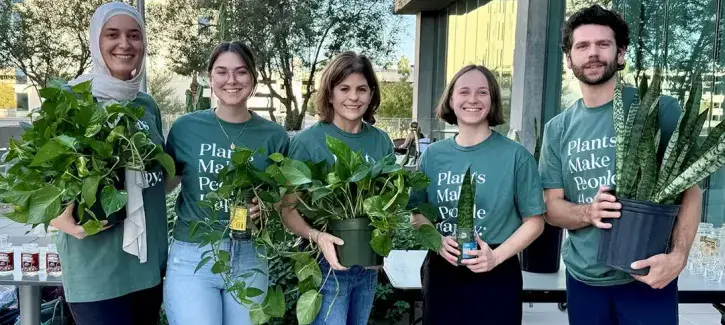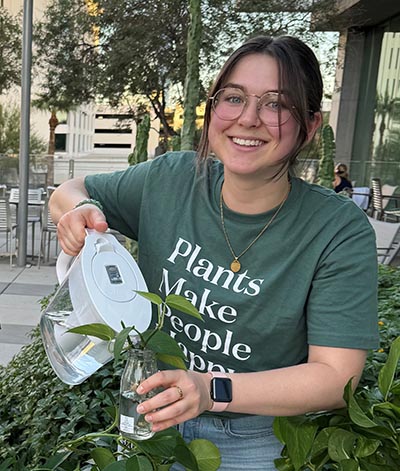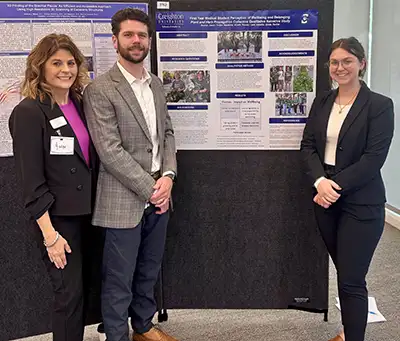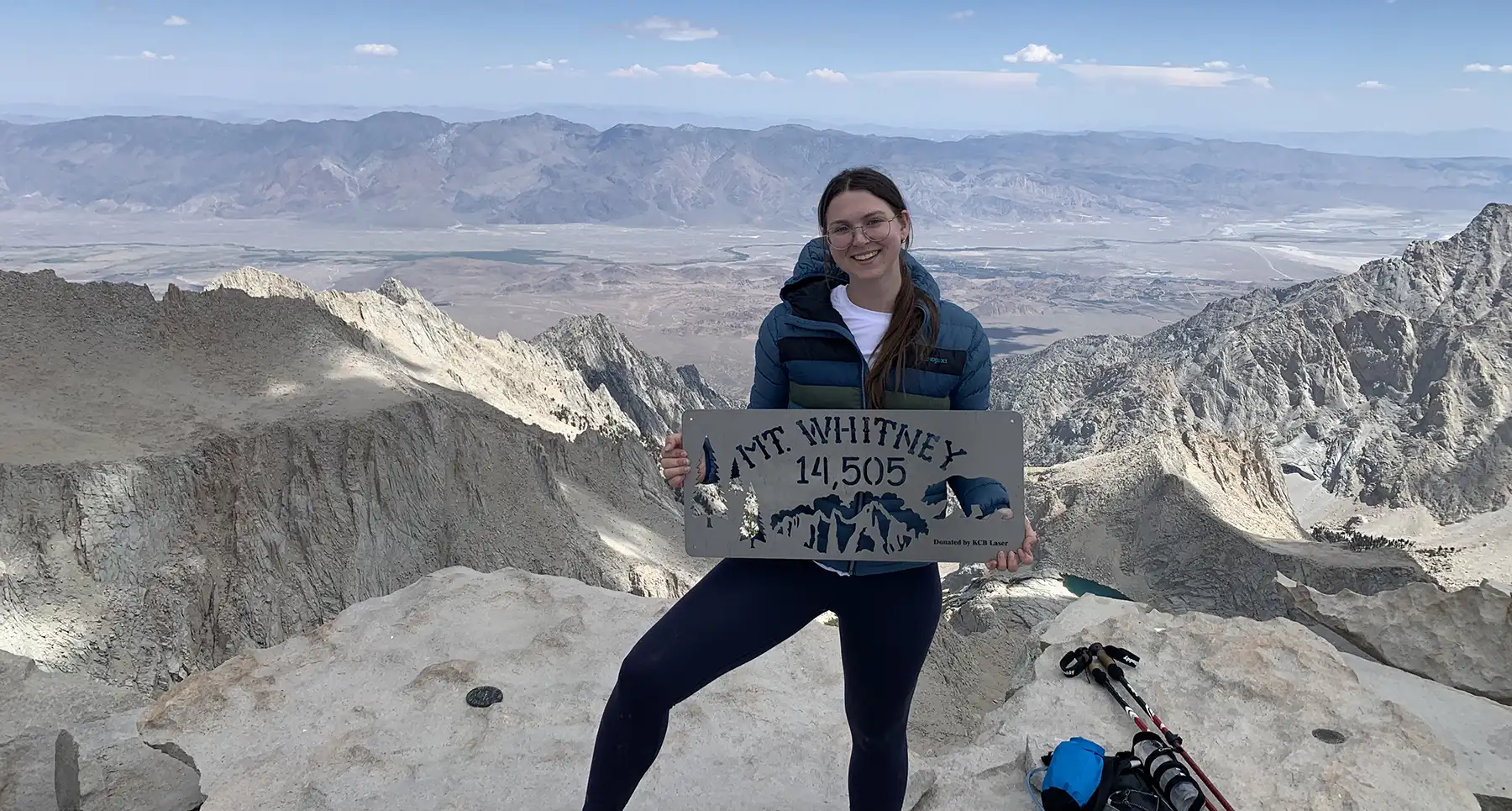
How one Creighton med student is bringing sustainability to healthcare

For Madeline Trotter, sustainability isn’t just something she’s passionate about—it’s deeply connected to the way she wants to practice medicine.

A second-year medical student at Creighton University’s Phoenix campus, Trotter believes healthcare and environmental care aren’t separate conversations—they’re two sides of the same story. And through her involvement on campus and in the community, she’s working to show others how sustainability belongs in healthcare, too.
“Our planet is one of the most precious gifts we have,” Trotter says. “It’s our collective responsibility to care for it so that future generations can enjoy the Earth in the same way we do.”
That belief has guided much of Trotter’s time at Creighton—shaping not only how she thinks about her future career, but also how she shows up as a leader today.
Finding Community and Purpose in Phoenix
Originally from San Jose, California, Trotter grew up near the ocean. Spending time outdoors shaped her love for nature early on—but it also sparked a deeper curiosity about environmental justice, sustainability and how environmental issues disproportionately impact marginalized communities.
When she started looking at medical schools, Creighton’s Phoenix campus stood out immediately. It wasn’t just the year-round sunshine or the access to outdoor spaces that drew her in—it was the people.
“I was drawn to Creighton for its strong emphasis on cura personalis, care for the whole person,” Trotter says. “That value shows up here in real, tangible ways—both in how we care for patients and how we care for each other as students. There’s a genuine sense of community here, and that’s been incredibly meaningful for me.”
That commitment to care for others—and the environment—led Trotter to get involved in student government as one of the Class of 2027’s sustainability co-chairs.
Sustainability in Action
Since stepping into her leadership role, Trotter has helped bring a wide range of sustainability initiatives to life on Creighton’s Phoenix campus.
One of the most visible projects is Sustainability Week—a week-long series of events designed to engage students in conversations around environmentalism, sustainability and planetary health. This year’s events included everything from a thrift store and donation drive to seed propagating workshops, a cleanup hike, a farmers market trip and even a bike raffle to encourage greener transportation.
Trotter has also led Creighton Phoenix’s participation in the Planetary Health Report Card—a national initiative that evaluates how health professional schools are incorporating environmental topics into their curriculum and operations. For Trotter, it’s a chance to connect her passion for sustainability with her future profession in medicine—and to help push important conversations about planetary health forward in medical education.
But some of her favorite projects have been the simplest ones. Last year, Trotter helped organize a plastic bag drive on campus, collecting more than 1,500 plastic bags that were then transformed into plastic yarn. That yarn was donated to Homeless MATters, a local organization that uses it to create sleeping mats for unhoused individuals in Phoenix.
And to reduce waste and support fellow students, she also created a shared resource database where student organizations can list extra materials or supplies for others to use—a small idea with a big impact on both sustainability and community building.
Why It Matters

For Trotter, sustainability isn’t just about protecting the planet—it’s about creating healthier, more equitable communities.
“Environmental justice plays a key role in my understanding of sustainability,” she says. “Access to clean water, green spaces and fresh air isn’t equal for everyone. And marginalized communities often bear the brunt of environmental degradation. These issues directly impact health.”
That intersection of health and environment is exactly where Trotter hopes to center her future work as a physician.
“As a future doctor, I want to care for my patients’ well-being while also considering the broader environmental factors that impact their health,” she says. “I see that as a natural extension of cura personalis.”
Small Actions, Lasting Impact
Trotter is quick to point out that making a difference doesn’t always require big, sweeping changes. In fact, she believes some of the most meaningful sustainability efforts start small.
“Even small actions can lead to meaningful change,” she says. “It doesn’t have to be all or nothing. Identify one thing you can do in your daily life and start there.”
She also encourages students to stay hopeful and celebrate progress, even when sustainability work can feel overwhelming.
“It’s easy to get caught up in everything that’s going wrong,” Trotter says. “But there are climate wins every day. This work matters—and we are making a difference, even on the days it doesn’t feel like it.”
Living Creighton’s Mission
Through it all, Trotter sees her sustainability work as an extension of Creighton’s Jesuit mission—a commitment to improving the human condition through education, service and social responsibility.
“As a future physician, it’s my responsibility to not only care for my patients’ well-being but also consider the broader environmental factors that impact health,” she says.
By leading with compassion and conviction, Trotter is helping shape a future where healthcare doesn’t just treat symptoms—it transforms communities.





